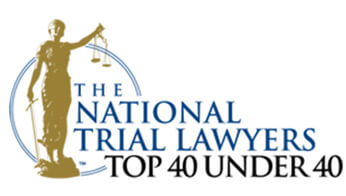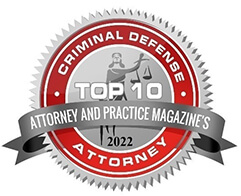Queens Criminal Lawyer
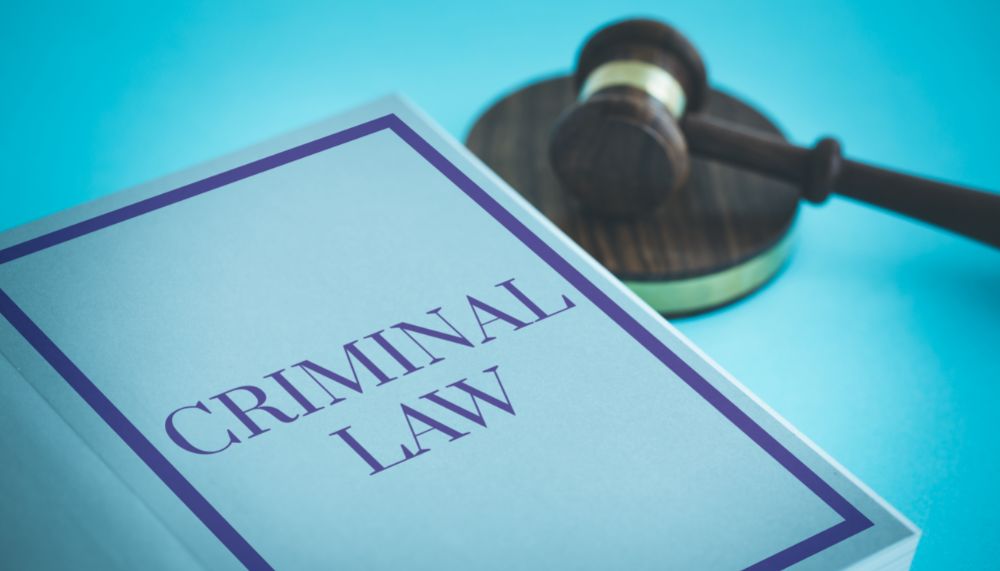
Queens, New York Criminal Defense Attorney
Facing a criminal charge is a terrifying experience. Being convicted of a crime can have a detrimental effect on the wellbeing of you and your loved ones for the rest of your lives. Even criminal charges that may not appear serious can result in heavy consequences such as large fines and incarceration. If you or a loved one was arrested or charged with a crime in Queens, New York, you must contact an attorney immediately.
Representation For a Variety of Criminal Cases
Queens criminal law attorney Michael Vitaliano is here to help you navigate the complicated and complex New York legal system. Attorney Vitaliano uses his experience as a former prosecutor to be an advocate in your favor. He’s aware of how aggressively New York state pursues even what seems like the most minor of crimes, and he knows how to fight back. Attorney Michael Vitaliano represents a variety of individuals in numerous types of criminal cases and is prepared to take on yours.
Driving While Intoxicated
In other states, driving under the influence (DUI) and driving while intoxicated (DWI) usually hold different definitions. They are typically designated for alcohol and drugs, respectively. However, in New York, all individuals are charged with one of five forms of DWI.
- Driving While Intoxicated (DWI): An individual’s blood alcohol concentration (BAC) is measured at 0.08% or above. For commercial drivers, this limit is 0.04%. First-time DWI offenders typically pay up to a $1,000 fine, have their driver’s licenses suspended for a minimum of six months, and face up to one year in jail.
- Driving While Ability Impaired (DWAI): An individual’s BAC is under 0.04%, but they are still unable to drive a motor vehicle safely and properly. As long as there is reasonable evidence to suggest that you are under the influence, you can be charged with a DWAI.
- Drug DWAI: A drug DWAI is charged whenever an individual is found to be under the influence of drugs, whether illegal or not, and unable to operate a motor vehicle properly. Even if the drug was prescribed by your doctor, you can be charged with a drug DWAI if it impairs your ability to drive.
- Combination DWAI: An individual is charged with a combination DWAI when they are found to be improperly or unsafely operating their motor vehicle while under the influence of both drugs and alcohol, no matter what kind.
- Aggravated DWI. Aggravated DWI is a heightened charge of the standard DWI. In order to be charged with a DWI, you must have been operating a motor vehicle with a BAC of over 0.18% or while under the influence with a minor 15 years of age or younger in the car.
If you are a repeat DWI offender in any form, you can face increased charges each time you are convicted. If you are charged with a DWI and have previous DWI convictions within the last ten years, don’t wait to retain counsel from Queens criminal lawyer Michael Vitaliano. You will be facing serious penalties, and you should not try to take on the criminal justice system on your own.
Drug Offenses
Attorney Michael Vitaliano provides his clients with representation for a number of high-level drug crimes like drug possession, drug possession with intent to sell, drug manufacturing, and drug trafficking. New York state does take any type of drug crime lightly, especially high-level crimes involving Schedule I or Schedule II drugs like heroin or cocaine. Penalties for drug-related offenses in New York can include heavy fines, jail or prison time, and supervised probation.
New York state assigns specific consequences and penalties to certain drug offenses, and it can be hard to get the prosecution to agree to any flexibility regarding your fate. As a former prosecutor, attorney Vitaliano knows this, and he has the upper hand when negotiating with the prosecution for your freedoms.
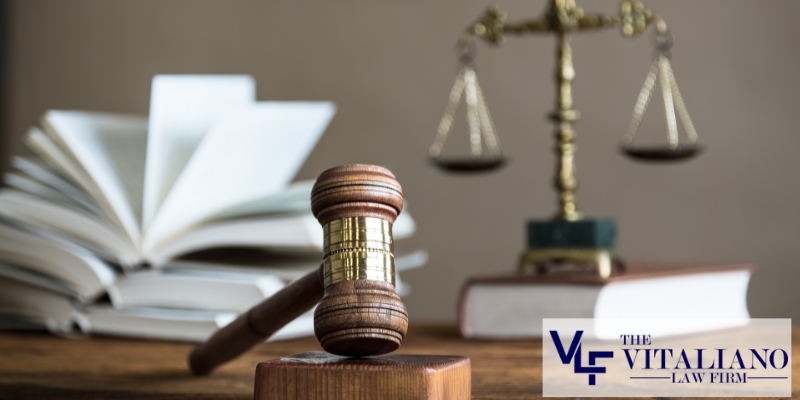
White Collar Crimes
There’s a common misconception that white-collar crimes are petty financial crimes and that when offenders are caught, they only get a “slap on the wrist.” It’s true that white-collar crimes often have a financial aspect involved, but the penalties for committing a white-collar crime are very serious. Attorney Vitaliano represents individuals who have been charged with a variety of white-collar crimes, including:
- Fraud. Fraud occurs when an individual uses deception to misrepresent information for their personal gain, financial, tax fraud, embezzlement, or otherwise. A business, the government, and another person can all be victims of the offender’s fraud. If convicted of fraud, you can face prison time and heavy fines.
- Bribery. Bribery is the gifting, offering, or receiving of an item of value, including actual currency, to influence another person. It is especially illegal to use bribery to influence a government official or a public servant, like a police officer. Certain forms of bribery can result in a felony conviction which includes penalties of prison time and heavy fines.
- Insider Trading. When stocks are sold and traded before pertinent information about the company has been released, it is called insider trading. The Federal Securities and Exchange Commission (SEC) considers insider trading to be a serious crime, and New York state tries its hardest to prosecute accordingly. Consequences can include a maximum prison sentence of up to 20 years and a maximum fine of $5,000,000.
- Money Laundering. Money laundering occurs when an individual takes money earned through illegal means, like underground gambling or drug sales, and “washes” it by claiming it as profits earned from a legal, legitimate business.
Racketeering
Racketeering refers to a type of organized crime where an individual profits from an illegal organization or scheme, commonly called a “racket.” There are many different types of racketeering, but most commonly, people think of what’s known as the protection racket. In this type of racket, vandals are sent by a perpetrator to harass and cause damage to a particular business. Then, the perpetrator would extort the business owner into paying them for protection services against the vandals. No matter what type of racketeering you are being charged with, it can come with very serious penalties under New York state and federal laws.
In the 1970s, the Racketeer Influenced and Corrupt Organizations Act (RICO) was signed into law in order to crack down on nationwide organized crime and mafia activities. Under the RICO Act, individuals and organizations are easier to prosecute, and they face serious penalties if convicted of an offense. In addition to Protection Rackets, the RICO Act defines 37 different crimes as “racketeering activities,” including:
- Fencing Racket. A Fencing Racket is an operation or organization that particularly deals with the reselling of stolen goods for profit.
- Numbers Racket. An illegal gambling operation, or any type of organization of unauthorized lottery.
- Antiquities Trade. Illegal extraction and/or exchange of antiques and artifacts with disregard to archaeological significance.
- Bid Rigging. Competitors conspire to profit together by raising prices for entities that acquire goods and services by soliciting bids. The entities in bid rigging cases are local, state, or federal governments.
If found guilty of racketeering, the penalties can be incredibly serious. If you are charged with any crime that is a violation of the RICO act, it is in your best interest to retain an expert criminal defense attorney immediately.
What Is the Queens Criminal Court Process?
After your arrest, the arresting police officer must file a report with the New York City District Attorney’s Office. It is up to the District Attorney’s Office to choose to continue to file charges against you. If they do not, you will be released. However, if they do file charges, you move on to an arraignment.
Arraignment
During a Queens criminal arraignment, you will be in court before a judge. The charges against you will be read aloud, and you will be told what your rights are, including the right to a trial. After consulting with your criminal defense attorney, you will respond to your charges with a plea of either “guilty” or “not guilty.”
Before you give your plea to the court, your attorney and the prosecutor may discuss a plea bargain for you. A plea bargain is a deal made between both the prosecution and the defense, where a defendant pleads guilty for a lesser sentence. When setting the terms for a plea bargain, your attorney works to the best of their ability to get a fair, reasonable outcome for you. If you take the plea bargain at arraignment, your case will end and will not continue to trial. It is very common for most cases in the criminal court system to end at arraignment with a plea bargain.
If you plead guilty, you may be sentenced immediately or another hearing could be scheduled for your sentencing. If you plead not guilty, your case will move forward to pre-trial.
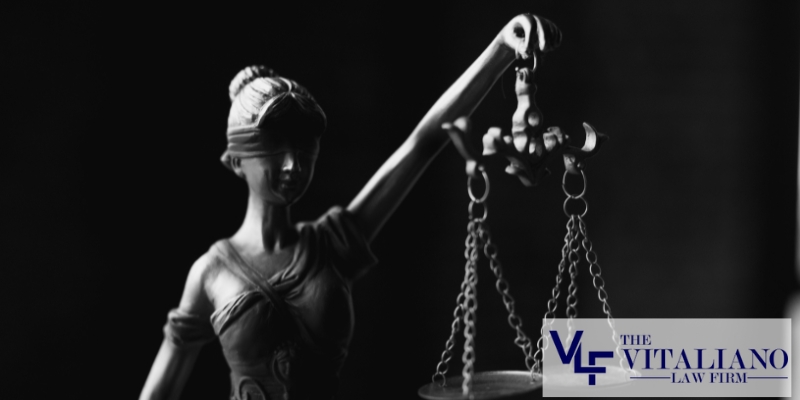
Pre-Trial
After you’ve pleaded not guilty, both the prosecution and your defense team will move forward to the next step, which is called discovery. This is when both sides exchange evidence and begin to build their case. During this step in the criminal justice process, both the prosecution and the defense can make pre-trial motions, also known as legal arguments. These motions may attempt to have the case dismissed or to have certain evidence suppressed. Occasionally, additional hearings for each of the motions may be held.
Trial
At trial, the prosecution will present their evidence to the judge or the jury. Depending on the type of trial, either the judge or the jury will decide the defendant’s fate. Trials will result in either a conviction, where you are deemed guilty of the offense, or an acquittal, where you are determined to be not guilty. If convicted, you will be sentenced. If you are acquitted, you can be released.
Sentencing
Sentencing occurs if you plead guilty or are found to be guilty by a jury or a judge. At sentencing, the judge determines the penalties for the offense for which you were found guilty. This depends on the severity and type of the offense and any previous criminal convictions you may have. After sentencing, you can appeal the conviction or the sentence.
Why Should I Hire a Criminal Defense Attorney?
Going up against the New York state criminal court without a Queens criminal defense lawyer isn’t a good idea. The court process is very complex and uses technical and legal jargon that you may not understand. The state prosecution is going to come at you aggressively. You need a powerful, knowledgeable criminal defense attorney like Mr. Michael Vitaliano to support and defend you through the process.
FAQs About Queens Criminal Law
How much do Queens, NY criminal lawyers typically charge their clients?
The cost of an attorney can generally depend on your unique situation and the attorney’s experience. In a common case like a DWI, your attorney may have set a flat rate. For more complicated and unique cases, you can expect to pay an hourly rate for your criminal defense attorney.
What do Queens criminal defense attorneys do?
In addition to helping you navigate the complex system of the New York criminal court, your attorney has a lot of responsibilities. Your attorney needs to create a case against any evidence the prosecution has and make sure that it was obtained legitimately. Your attorney can also help you establish your alibi if you have one, and they may work with the prosecution to lessen charges against you.
What is the most common crime in Queens?
In the borough of Queens, property crime is the most common. Theft is the most common specific form of property crime, followed by burglary and motor vehicle theft. Violent crime is not nearly as common. Out of all violent crimes, robbery is the most common in Queens, followed by assault.
What should you ask when hiring a criminal defense attorney?
When you hire a criminal defense attorney, you should ask them how long they have been practicing law, what are their success rate with cases like yours, and what the possible outcomes of your case might be based on their experience. In addition, you can ask them about their availability and rates.
Contact Our Law Group to Talk to a Queens Criminal Defense Lawyer
If you or a loved one has been charged with a crime in Queens, New York, it’s very important that you seek legal representation right away. You have rights, and your freedoms should be protected. Contact Michael Vitaliano for a free consultation today.
Testimonials



